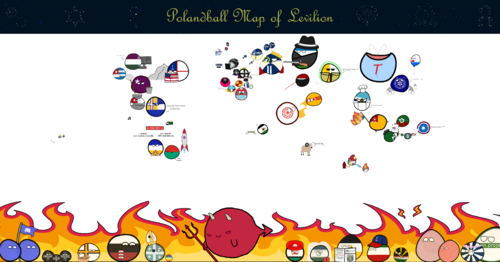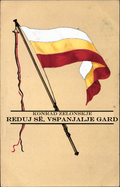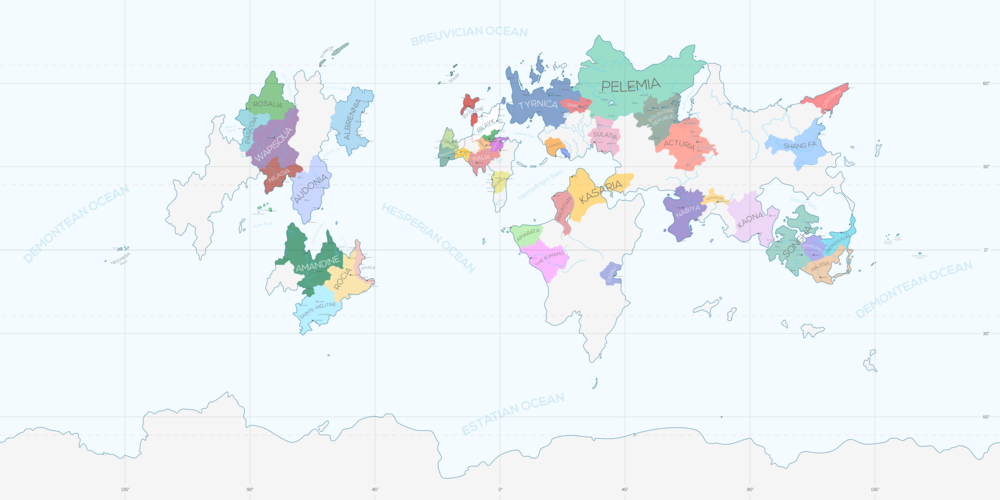Portal:Levilion: Difference between revisions
mNo edit summary Tag: Manual revert |
mNo edit summary |
||
| Line 47: | Line 47: | ||
<div> | <div> | ||
<div style="background:#cc97ff;color:#fff;text-align:center">'''This Month in History'''</div> | <div style="background:#cc97ff;color:#fff;text-align:center">'''This Month in History'''</div> | ||
<div style="padding:1rem">{{Portal:Levilion/Month/ | <div style="padding:1rem">{{Portal:Levilion/Month/September}}</div> | ||
</div> | </div> | ||
</div> | </div> | ||
Latest revision as of 00:28, 1 September 2024
Prior to colonisation, Surrow was inhabited by indigenous peoples, beginning from around 3000 BP: at the time of colonisation, the Surrowese archipelago was inhabited by Chequan and Itchalnu. However, after Avery Holcot discovered the archipelago in 1486, and noted that its waters were abundant with fish, Auressian nations sought to rule over the archipelago, with the two most prominent ones being Rythene and Tyrnica. Competition between the two countries over the Surrowese archipelago and its abundant fishing grounds would last until the end of the Eleven Years War in 1759 between Rythene and Tyrnica, which concluded with Rythene assuming sole control over the archipelago.
During the Great Upheaval, Surrow was neglected by the Rytheneans, which led to the beginning of Surrowese self-government. Although after the Great Upheaval, Rythenean control was restored, the Surrowese would desire a greater say in their affairs, and would chafe under continued Rythenean rule. Despite this, Surrow would maintain its position as part of the Rythenean Empire until it gained independence in 1950.
In 1951, palladium was discovered on Great Island, leading to increased interest in the Surrowese archipelago by General Armaments. This led to substantial economic investment, with the Tulaktarvik mine becoming the primary economic engine of Surrow, especially after the cod fisheries in Surrow began to decline. Today, Surrow is a part of the invisible empire, with Surrow maintaining good relations with the invisible empire and the Commonwealth of Northern Auressia, and is a full member of the Assembly of Marceaunian States.
(See more...)
Polandball Map of Levilion 2021 by Rythene
- 1 September 1799 – King Phillip III of Blayk died.
- 1 September 1829 – King Nicholas II of Tyrnica died.
- 1 September 1986 – The current Rythenean constitution was adopted, which formally established the Third Republic. It is also the date of the presidential elections every four years, and the day the current Rythenean flag was adopted.
- 7 September 1479 – Union between Tyrnica and Kürskäringar.
- 9 September 1835 – Current constitution of Amandine ratified and adopted.
- 12 September 2002 – President Edward Hådirssen married his partner Evelyn Schofield.
- 18 September 1047 – The Storming of the Ant Hill, a confrontation during the invasion of Rythene.
- 25 September 1901 – King Leopold II of Blayk died.
- 27 September 1898 – King Frederick III of Tyrnica died.
- 28 September 1917 – Renowned Rythenean author and poet Ermina Arlette was born.
- 30 September 1868 – The first Republic of Nova Kovaria is established after achieving independence from Audonia.




